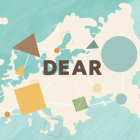BeGlobal: A New Centre for Global Education
News details

Enabel, Belgium´s government agency for development cooperation, has created a centre of expertise in Global Citizenship Education(GCE): BeGlobal. BeGlobal advocates for the generalisation and integration of GCE in educational systems, both in Belgium and in partner countries. It provides quality GCE material for practitioners and fosters exchanges to strengthen international solidarity. Their 2023 magazine edition explores the significance of the Dublin Declaration, a new European framework developed by the Global Education Network Europe (GENE), in advancing GCE in Europe.
The Dublin Declaration, a sequel to the Maastricht Declaration, marks a milestone in the advancement of Global Education. After a lengthy process involving key stakeholders such as regional and national representatives, youth, practitioners, NGOs, research, and education sectors, the Dublin Declaration lays the foundation for establishing and strengthening high-quality Global Education in Europe. BeGlobal's 2023 magazine edition, features several authors offering different insights into the numerous facets and implications of the Declaration.
Development and Content of the Dublin Declaration:
Sabine Seiffert, formerly of the Global Engagement and recently the Berlin Development Policy Council (Germany), sheds light on the development of the Dublin Declaration, including the decision-making processes and its key content. She provides an overview of the Declaration's origins and its significance.
Political and Practical Implications:
Annamaria Vicsek, from the Ministry of Education in Serbia, explores the political and practical implications of the Dublin Declaration on Global Education. By delving into the real-world applications of the Declaration, its potential impact on educational systems and policymaking to drive positive change in GCE is highlighted.
Opening New Doors for Research and Innovation:
La Salete Coelho of the Angel Advisory Board (Portugal) and Ana Larcher Carvalho from GENE (Portugal) discuss how the Dublin Declaration opens up new opportunities for research and innovation in GCE. The authors outline the potential for harnessing the Declaration to push boundaries and explore new methodologies and approaches in GCE. La Salete and Ana, together with Annamaria, also provide a bibliography of sources on GCE.
Continuity and Differences in Declarations:
Liam Wegimont, the Executive Director of GENE (Ireland), reflects on the differences and continuity between the Maastricht and Dublin Declarations. A main driver behind the Declaration, he explores how the Dublin Declaration builds upon its predecessor while introducing novel elements to enhance GCE in Europe.
All writers highlight how the Dublin Declaration serves as a significant milestone for Global Citizenship Education. Through BeGlobal's publication, GCE practitioners in Belgium and beyond gain insights into the development, content, implications, and research potential of this new European framework. By fostering international solidarity and promoting a more equitable and sustainable world, GCE takes a step closer to becoming an integral part of educational systems worldwide.
Background:
Enabel is a Belgian development agency that supports and implements development projects in partnership with countries and regions in the global South. Formerly known as the Belgian Technical Cooperation (BTC), Enabel focuses on sectors such as agriculture, health, education, and employment - as well as Global Citizenship Education. The agency works to strengthen the capacities of its partner countries and supports sustainable development initiatives to improve the living conditions of local populations. Enabel also promotes gender equality, decentralised cooperation, and the inclusion of vulnerable groups in its development activities.

Log in with your EU Login account to post or comment on the platform.